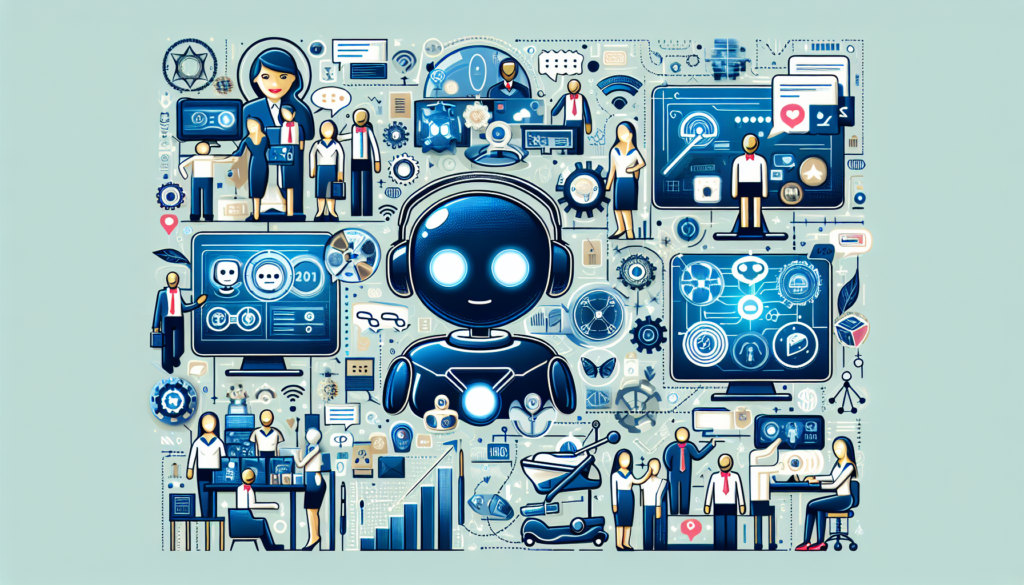In the context of customer service, chatbots represent an ongoing revolution, driven by advances in artificial intelligence (AI) and natural language processing (NLP). In 2023, these autonomous software entities exhibit significant improvements in language understanding and processing, the contextualization of requests, and the personalization of responses, establishing themselves as an essential tool for businesses looking to optimize their customer service.
Comparative Analysis of Prominent Chatbots
Natural Language Processing Capabilities
In natural language processing, the quality of a chatbot is measured by its ability to interpret and generate coherent responses. The comparison between prevailing systems in 2023 reflects the supremacy of those that have implemented advanced transformational language models, such as GPT-4 and its equivalents, underscoring a qualitative leap with respect to its predecessors like BERT and GPT-3 in terms of contextual understanding.
Personalization and Continuous Learning
The leading chatbots currently employ machine learning algorithms that analyze data from past interactions. This enables them to tailor their responses to the specific preferences of the user and the unique context of each conversation. Moreover, their ability to continuously refine their knowledge base through reinforced learning techniques ensures a constant improvement in the accuracy of their responses.
Multichannel Integration
The most advanced systems offer seamless integration with multiple communication channels, including social media, instant messaging apps, email, and voice platforms. This versatility ensures a consistent and accessible user experience, regardless of the initial point of contact.
Compliance and Security
Concerning regulatory compliance and data security, cutting-edge chatbots are designed to strictly adhere to regulations such as the GDPR and CCPA. This translates into greater trust from users interacting with these systems, knowing that their information is protected.
Illustrative Case Studies
Chatbot A: Solutions in Banking
A financial chatbot from leading banking institutions has proven to be an exemplary example, providing real-time advice on financial products, resolving queries, and executing transactions. This chatbot utilizes advanced AI algorithms that enable it to interpret complex requirements and perform actions such as transfers, balance inquiries, and more, with a high degree of accuracy and security.
Chatbot B: Personalization in E-commerce
In the e-commerce sector, a particular chatbot stands out for offering highly personalized product recommendations. Based on the customer’s browsing and purchase history, as well as previous interactions, this chatbot presents relevant suggestions, significantly increasing conversion rates and customer loyalty.
Chatbot C: Healthcare Assistance
In the healthcare field, a specific chatbot has gained notoriety for providing accurate information on medications and procedures, as well as efficiently directing users to the appropriate specialists. Operating under strict privacy protocols, this chatbot improves the patient experience and alleviates traditional care channels.
Future Directions and Potential Innovations
Interactivity and Immersive Experiences
Chatbots are anticipated to evolve towards creating more immersive experiences for the user, integrating capabilities such as augmented and virtual reality to offer a multisensory and highly personalized interaction.
Expanded Autonomy
An expansion in the autonomy of chatbots is projected, allowing them to perform a broader spectrum of tasks with minimal human supervision, and even facilitate real-time decision-making based on the accumulation and analysis of large volumes of data.
Emotion Detection and Response
Improvements in emotional detection and artificial emotional intelligence are expected to provide chatbots with an advanced capacity to appropriately respond to users’ emotional states, improving the empathy and effectiveness of interactions.
Conclusion
The chatbots of 2023 represent a pinnacle in customer service, with enhanced capabilities for personalization, integration, and security. Businesses that adopt them are not only improving their service metrics and customer satisfaction but are also positioning themselves at the forefront of technological innovation. As chatbots continue to advance, their role in customer service can only be expected to expand and deepen, thereby marking the future of customer engagement across all industries.

